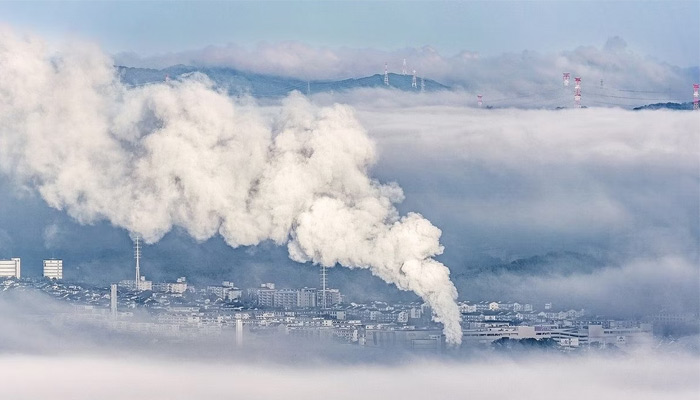Young people around the world are increasingly taking their governments to court for failing to reduce climate pollution, and on rare occasions, they are winning.
This week, their efforts received an endorsement from an independent panel of experts that interprets United Nations human rights law, the Committee on the Rights of the Child.
In an expansive 20-page document released Monday, the committee said all countries have a legal obligation to protect children from environmental degradation — including by “regulating business enterprises” — and to allow their underage citizens to seek legal recourse.
The committee’s opinion is not legally binding and is therefore impossible to enforce. But it is significant because it is based on a widely recognized international treaty and explicitly recognizes children’s right to go to court to force their government to slow down the climate crisis.
That treaty is the Convention on the Rights of the Child, which is considered the most widely ratified treaty in history because every country in the world except the United States has signed on to it. In the past, courts in many countries, including on rare occasions the United States, have relied on the committee’s interpretations in their decisions.
“Children have the right to a clean, healthy and sustainable environment,” the committee wrote. “This right is implicit in the convention and directly linked to, in particular, the rights to life, survival and development.”
The committee is made up of 18 independent legal experts elected to four-year terms by diplomats representing their countries in the United Nations. The current panel includes lawyers and law professors from countries including Barbados, Morocco and South Africa.
“A strong statement under this convention would add another brick to the growing edifice of international human rights law on climate change,” said Michael Gerrard, director of the Sabin Center for Climate Change Law at Columbia University.
The committee went on to note that countries are responsible for safeguarding children from the harms of climate pollution now and in the future. “States bear the responsibility for foreseeable environment-related threats arising as a result of their acts or omissions now, the full implications of which may not manifest for years or even decades,” the committee wrote.
Climate activists tried in 2019 and failed to get a more decisive ruling from the committee. In an inventive complaint, 16 children filed a petition against five countries — Argentina, Brazil, France, Germany and Turkey — claiming that their fossil fuel emissions violated the rights of children in other countries. In 2021, the committee concluded that the petitioners should bring cases to their national courts first.
The law firm that filed that petition, Hausfeld, said Monday that the latest guidance by the committee was “a major step to hold governments and private entities responsible for ensuring children live in a clean, green, healthy and sustainable world.”
Many people have sought legal recourse for climate impacts in their own countries, with mixed results. Just this month, in the United States, a judge in Montana ruled that the state had violated its constitution when it failed to consider the climate change effects of fossil fuel projects. That ruling requires Montana, a major coal and gas producer, to weigh those effects in deciding to approve or renew fossil fuel projects. The state said it would appeal.
In Australia, teenagers who won a similar case in 2021 lost on appeal in 2022.
Cases like these rely on the principle, embedded in many national and state constitutions, that citizens have a right to a clean environment. This is essentially what the Committee on the Rights of the Child concluded in its interpretation of the child rights treaty. “Environmental degradation jeopardizes children’s ability to achieve their full developmental potential, with implications for a wide range of other rights under the convention,” it wrote.
The committee called on countries to “immediately” take several actions. Countries should “equitably phase out the use of coal, oil and natural gas,” the committee wrote, as well as invest in renewable energy, improve air quality, reduce marine pollution and protect biodiversity. And children should be able to pursue “class-action suits and public interest litigation,” the committee said.
International treaties and laws haven’t often been used in climate litigation. But that’s changing. The International Court of Justice is currently weighing whether countries can be sued under existing international conventions for failing to rein in fossil fuel emissions that caused the climate crisis.

